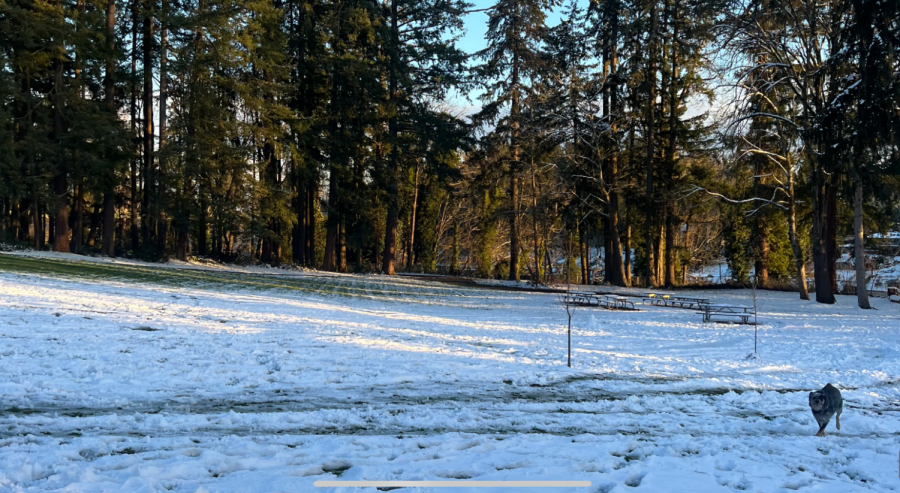Late snow raises students’ concerns for climate change
Students woke up to a few inches of snow coating the ground. To the student’s pleasure school was cancelled for 2 days.
Wilsonville’s annual “snow break” came via March this year, to much relief from students who fretted that snow wouldn’t come this year. Although the makeshift 4-day break was cause for celebration for most students, to others it could be seen as a grave warning.
The status of Earth and its rising temperatures have been subject to heavy debate over the past decade. Current high school students constitute some of the biggest activists behind this movement, as the increasing severity of climate change over the past decade has coincided with their growth through adolescence. Teenagers have witnessed firsthand how the world has changed since they were children and often have strong opinions about it, one way or the other.
“As a kid, I remember snow coming every other year, but now it feels guaranteed every winter,” said Justin Schramm, a junior who’s lived in Oregon his entire life. This is a sentiment that has only gained popularity as this year would’ve marked the first winter in many amounting to no snow.
Generally, the agreed-upon effects of climate change include stronger temperatures in the summer and heavier more random precipitation in the winter. The latter has been heavily scrutinized as of late. Although students are accustomed to a certain amount of snow in the winter, that does not go for March, which is bordering spring.
On average Wilsonville receives between 1-3 inches of periodic snowfall from December to January. This trend is almost completely halted past the point of February 11, where the average snowfall plummets to under half an inch during February and March. Within this period there are little to no recorded instances of more than an inch of snow falling in Wilsonville.
“I was surprised to see snow outside my house last week,” claimed junior Jeremy Budroe, a ten-year Wilsonville resident. As someone completely acclimated to the cyclical nature of Wilsonville’s weather, heavy snow in March was a first even for him.
Whether one thinks climate change has hit Wilsonville or not is up to the individual, but the climate over the last 5 years has been certainly peculiar. With the record temperatures in the summer and the unpredictable precipitation in the winter, there is a valid case in favor of the impact of climate change.









